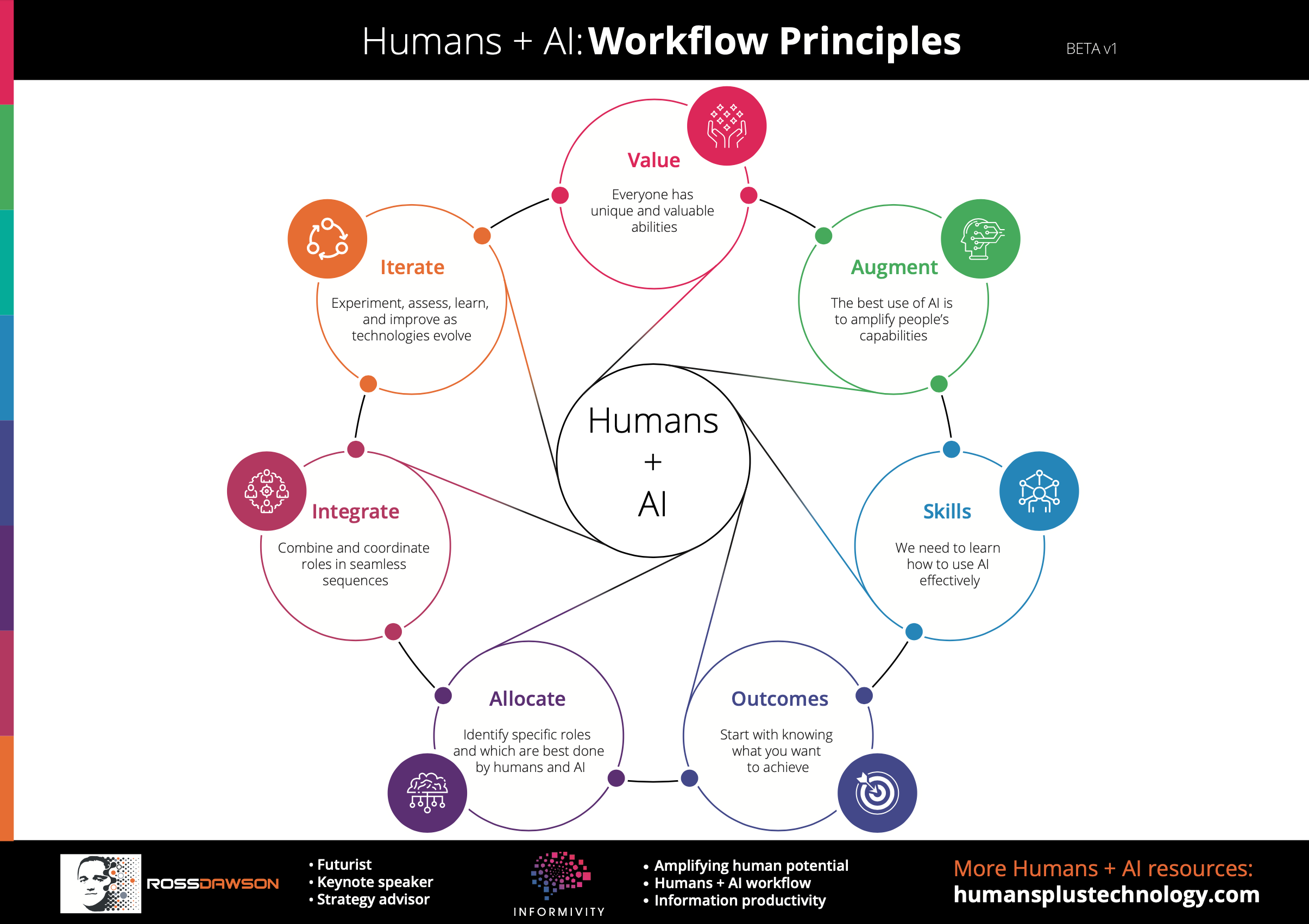
Table of Contents
In today’s fast-paced business environment, digital transformation has become crucial to maintain competitiveness and innovation. Before the digital era, it was evident that repetitive manual tasks hindered business agility and wasted valuable time, leading to demotivated employees and increased chances of errors. As a result, enterprises began automating as many manual tasks as possible, enhancing productivity, efficiency, and growth through automation technology.
Businesses are always striving to optimize costs and productivity, and one promising solution is implementing AI workflow automation. This innovative approach involves utilizing AI tools to automate tedious and repetitive tasks, greatly improving efficiency and productivity. Furthermore, workers are then able to focus on higher-value work, driving their engagement and job satisfaction.
According to a recent report, around 60% of organizations now utilize workflow automation tools for both analytics and business process automation, clearly indicating the increasing importance of automation in the business world. With the continuing advancement in technology, businesses that embrace automation and digital transformation will be positioned to reap significant benefits now and in the future.
What are AI workflows?
Artificial intelligence (AI) workflows represent a transformative advance in streamlining and optimizing business processes. This exciting innovation is revolutionizing the way organizations operate by automating tasks previously performed manually while improving productivity and efficiency.
Companies of all sizes are taking advantage of the benefits of AI workflows for their manual, human-dependent processes to drive growth and development. The beauty of automated workflows is that they free up employees’ time and provide them with the opportunity to engage with more strategic and complex work.
This means that precious human resources can be focused on tasks that require creativity, innovation, and problem-solving skills, enabling organizations to cultivate a more dynamic, forward-thinking culture. With the power of AI workflows, the sky is truly the limit in driving innovation and growth.

Benefits of workflow automation with AI
Cost savings
By implementing AI technology, companies can save a significant amount of money that would have otherwise been spent on hiring and training employees to perform these routine, time-consuming tasks. By eliminating the need for manual labor in such processes, businesses can unlock new opportunities for creativity and innovation, directing their resources towards more complex, high-value tasks that require human expertise.
Furthermore, AI automation ensures that errors are kept to a minimum, resulting in significant cost savings for enterprises in the long run. By reducing the incidence of errors, businesses need to spend less time and money correcting them, ultimately enabling them to focus on their core competencies and drive revenue growth. The benefits of AI workflow platforms are many, and for businesses seeking to stay ahead of the competition, investing in these technologies is a smart move for the future.
Better efficiency and productivity
Automating repetitive tasks is a remarkable way to make a significant difference in your daily workflow. When these mundane, time-consuming tasks are automated, you can rest assured that any possible human errors will be eliminated. This will lead to increased efficiency, and as a result, higher productivity levels can be achieved.
The assistance of AI workflow tools can be highly beneficial in this regard. Taking customer service, for instance, automating its processes through these tools leads to quicker and more accurate responses to customer queries. This not only impacts positive customer satisfaction but also reflects positively on your brand image in the long run. By automating daily repetitive tasks, you can work smarter, not harder, and allow more time to focus on tasks that require human attention.
Improved data analytics
In the digital era where technology is ever-evolving, data-driven decisions are now becoming increasingly important in the business world. Companies and organizations have realized that making decisions based solely on experience and intuition is no longer enough to stay competitive. The amount of data at their disposal has increased exponentially and it can be overwhelming for business leaders to process and analyze.
Therefore, automating data processing has become a crucial factor in making timely and informed decisions. This has led to the emergence of AI-powered tools like workflow tools, which provide real-time data analysis capabilities. Utilizing these tools can result in improved business outcomes, profitability, and a competitive edge. Therefore, businesses should consider investing in these cutting-edge technologies to stay ahead of the curve and maintain their success in the long run.
Faster time-to-market
A faster time-to-market can increase business revenue and market share, improve agility, and boost customer satisfaction. A company can quickly adapt to market changes and test and launch products before the competition. It is especially true for businesses that handle large volumes of manual tasks. For example, a used car marketplace can use AI-powered image moderation to automate onboarding workflows, accelerating the onboarding process for car listings.
Types of AI workflow automation

Predictive analytics automation
Predictive analytics is a popular tool for improving profitability and forecasting sales, with 52% of businesses adopting it. This involves analyzing past performance to predict future outcomes, using AI and machine learning to enhance data analysis. Automation allows for efficient data processing and informed decision making, making it a valuable asset for organizations seeking to improve their performance.
Cognitive automation
Cognitive automation means combining artificial intelligence and process automation to boost business outcomes. It involves using different approaches to capture data, automate decision-making, and scale automation. Unlike other types of AI, such as deep learning or machine learning, cognitive automation tools imitate how humans think.
Rules-based automation
AI workflow automation is a technological breakthrough that efficiently stores, sorts, and manipulates vast amounts of data using human-made rules. With the help of rules-based automation platforms, industries can automate repetitive tasks, saving time and increasing efficiency.
This saves organizations time and resources, allowing them to focus on other aspects of their business. RPA tools are ideal for businesses of all sizes looking to streamline their operations and increase efficiency in a world that is constantly evolving. The potential benefits of AI workflow automation are limitless, and the advantages of adopting this technology are clear.
Use cases for AI workflow automation

Industry-specific use case: Manufacturing
AI workflow tools are increasingly used in manufacturing to automate key processes and improve efficiency. These tools offer benefits like identifying defects, predicting maintenance issues, automating inventory management, and enhancing quality control. By streamlining operations, businesses can cut costs and boost productivity.
Department example: Sales and marketing
AI-enabled workflow automation is transforming the way businesses operate. It helps generate and qualify leads, prioritize follow-ups, and create targeted marketing campaigns. This technology enhances understanding of customer behavior, predicts trends, and aids in sales figures. From startups to Fortune 500s, it is imperative in today’s competitive business environment.
Top challenges in implementing AI-based workflows
Ensuring data quality and availability
AI is essential in many industries today, including healthcare. However, this sector faces unique challenges due to its sensitivity and heavy regulations. Obtaining unbiased and complete data sets for AI training purposes can also be difficult. Therefore, healthcare organizations must prioritize developing effective data management strategies before integrating AI automation.
This will ensure that AI systems provide reliable and accurate insights that improve patient outcomes. A well-planned data management strategy can manage, store, and organize large volumes of healthcare data and guarantee that the data sets utilized are accurate, diverse, and free of biases.
Skilled talent
As businesses become more complex, the need for AI is evident. But, there’s a shortage of expertise, with an estimated deficit of 250,000 data scientists by 2025. To address this, companies should upskill their current employees to build their capabilities. This fosters a culture of learning and tackles the shortage, unlocking the potential of AI.
Integration with existing systems
Companies are using multiple SaaS applications in their daily operations, but integrating them with AI tools can be a challenge. A solution is to choose an AI workflow platform that can seamlessly integrate with most enterprise software.
This simplifies the process, minimizes manual intervention, and makes the workflow more efficient and productive. Starting small and integrating systems that require minimal changes first is another effective approach to minimize disruption to other business operations.
Future Trends in AI WorkFlow
Gartner, one of the leading research and advisory companies in the world, has come out with an insightful projection that by 2024, almost 69% of repetitive and routine tasks will be automated thanks to the rapid advances in artificial intelligence (AI) and workflow automation technology. This means that businesses and organizations of all sizes must start looking into AI-powered workflow automation tools and solutions as they have now become a necessity across various industries.
With the use of such technology, companies can streamline their processes, save time and reduce the chances of errors or mistakes that can be costly. As we advance into the future, it’s evident that adopting automation will continue to be a critical step for organizations looking to boost their efficiency, remain competitive and stay ahead of the game.



